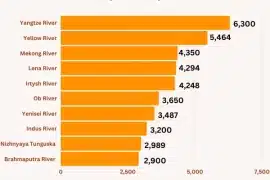Dive headfirst into the exhilarating world of data science – a field that has rapidly risen in demand in today’s dynamic tech job market. Its allure lies not just in its newfound prominence but in the attractive career opportunities it presents. However, the road to achieving mastery in data science will require some work. With a focus on aspiring individuals looking to stand out in the field, this guide endeavors to furnish a concise roadmap, paving the way for success in the realm of data science!
Imagine being able to dissect complex issues and report actionable insights using data analytics, making educated decisions rooted in science. This is the true power of data science, an interdisciplinary field that harnesses scientific methodologies, algorithms, and systems to distill information and insights from even the largest data sets. It’s a unique blend of mathematics, statistics, and computer science that enables you to solve intricate problems.
Understanding Data Science
Data science is a field that uses scientific methods, processes, algorithms, and systems to extract knowledge and insights from data using data analytics. It combines elements from various disciplines such as mathematics, statistics, and computer science to solve complex problems and make data-driven decisions.
To embark on this career path, it is crucial to have a strong grasp of the following:
Key Skills and Knowledge for Achieving Mastery in Data Science
Programming Skills. Proficiency in languages such as Python are highly valuable for data manipulation, analysis, and machine learning tasks.
Stats and Math. Get cozy with statistical concepts and mathematical algorithms. They’re your best friends when it comes to data analysis and modeling.
Data Cleaning and Preprocessing. Learn to cleanse your data, tackling missing values, outliers, and inconsistencies.
Exploratory Data Analysis. Make your data speak. Learn Data Analytics & Engineering to visualize and summarize data to uncover hidden insights and patterns business leaders can use to make better informed business decisions.
Create a Robust Educational Foundation
Of course education is the core of data science ability. Here’s how to make the most of it: To excel in data science, it is crucial to build a strong educational foundation. This section explores the fundamental concepts and resources that will lay the groundwork for your career.
Traditional and Virtual Classrooms. Pursue a formal degree in data science or a related field.
Experiment and Learn. Immerse yourself in hands-on projects and contests. Such active engagement and practical application will cement your learning and refine your data science knowledge.
Contribute and Grow. Join the open-source community and actively contribute to data science tools and libraries. Be part of shaping the future of data science.
Harness the power of the internet. Online platforms like Coursera, edX, Data Camp and CCS Learning Academy offer a wealth of courses and tutorials tailored to various aspects of data science.
Specialization and Advanced Topics
Discovering Your Data Science Path. As you venture further into data science, specialize in areas that match your interests, skills and aspirations such as machine learning, data visualization, data mining, or big data.
Unravel the Mystery of Machine Learning and AI. Grasp the complex intricacies of machine learning and artificial intelligence to unlock new potentials and future-proof your career.
Model Development Mastery. Master the art of constructing predictive models, using powerful tools like TensorFlow or PyTorch.
Exploring the World of Big Data and Cloud Computing. Learn influential technologies such as Apache Hadoop, Spark, and notable cloud platforms like Google Cloud or Amazon Web Services.
Navigating Massive Datasets. Harness the power of big data. Learn to manage and dissect large datasets to extract actionable insights.
Evolve with Cloud Technologies. Understand the use of cloud computing platforms, a crucial skill in the age of big data and data-driven decision-making.
Networking – Your Secret Weapon. There’s a power in networking that will propel a data science career forward more effectively than any other tactic. Connect with industry mavens, attend industry events, and engage in online communities like Kaggle or GitHub.
Show, Don’t Tell. Your skills and experience speak volumes about you, but you must communicate them effectively. Consider these strategies:
A. Build an Impressive Portfolio. A portfolio highlighting your projects, code samples, and data analysis reports is often the difference between a successful candidate and everyone else. Paint a picture of your problem-solving abilities and make sure to include results: the impact of your work.
B. Collaborative Efforts and Open-Source Contributions. Showcase your collaboration skills and areas of expertise by contributing to open-source data science projects.
Just as graphic designers should have a portfolio of work on platforms like Behance.net, participate in Kaggle competitions or data science hackathons to showcase your abilities.
Developing your technical proficiency, such as programming skills like Python, and a firm background in statistical and mathematical concepts, is vital. Equally important is mastering data manipulation and analysis techniques, including data cleansing and exploratory data analysis.
By following this comprehensive guide and implementing the recommended strategies, you’re setting yourself up for achieving mastery in data science. So, brace yourself, rise to the challenge, and seize the thrilling career opportunities that lie ahead in the tech job market!








